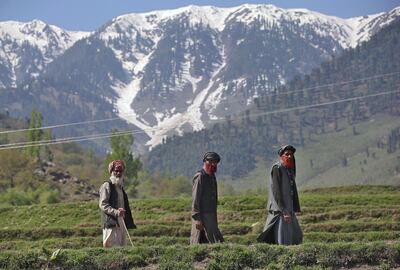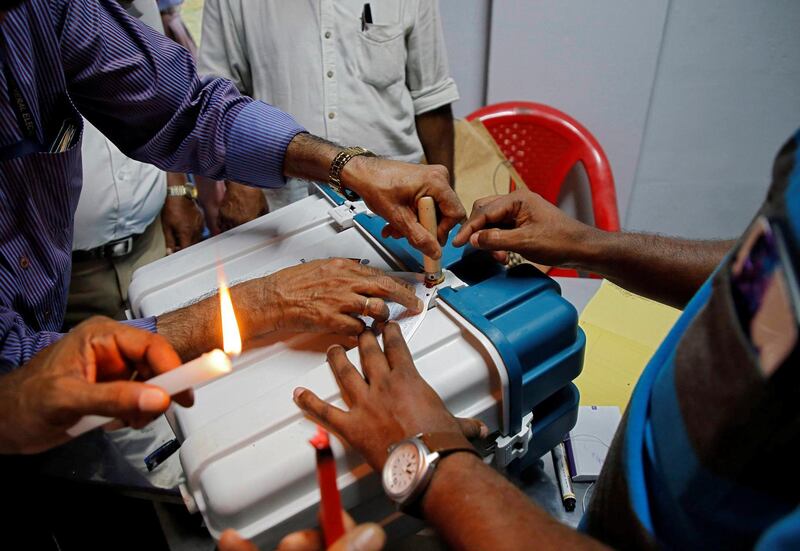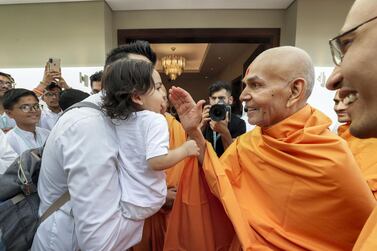The Indian election hit the halfway point yesterday as Prime Minister Narendra Modi and millions of others headed to the polls for the third round of voting. The final stage will be on May 19.
The campaign has been an acrimonious affair with Mr Modi’s Hindu nationalist Bharatiya Janata Party and the opposition Congress party exchanging accusations.
The voting on Tuesday was for 117 parliamentary seats in 13 states and two Union Territories.
The election is seen as a referendum on Modi's five-year rule. He has adopted a nationalist pitch in trying to win votes from the country's Hindu majority by projecting a tough stance against Pakistan, India's Muslim-majority neighbour and arch-rival.
The opposition is challenging him for a high unemployment rate of 6.1 per cent and farmers' distress aggravated by low crop prices.
Mr Modi voted in his western home state of Gujarat on Tuesday, though he is contesting for a parliamentary seat from Varanasi, a city in the northern state of Uttar Pradesh.
In an apparent reference to the Easter Sunday attacks in neighbouring Sri Lanka, Modi told reporters, "The weapon of terrorism is IED [improvised explosive devices] and the strength of democracy is voter ID [identification cards]. I can say with surety that the voter ID is much more powerful than an IED."

Campaigning in the multi-phase election ends 48 hours before voting in a particular area. The voting is staggered to facilitate the movement of security forces to oversee an orderly election and avoid voter fraud.
Tuesday's voting is important for Modi's Bharatiya Janata Party, which won more than half of the 117 seats from the states voting Tuesday in the 2014 elections that brought it to power. The BJP's performance Tuesday will have a bearing on its bid to retain power in New Delhi.
In one quirk of the Indian electoral process, a rule that a polling centre must be within a convenient of all registered voters saw officials travel nearly 70 kilometres through lion-infested jungle to ensure a 69-year-old holy man got his chance to take part in the world's biggest democratic exercise.
A four-member team of election officials, accompanied by a policeman, set up a special polling station deep in the Gir wildlife sanctuary in Gujarat state so a sole voter – Bharatdas Darshandas – could vote in the general election.
A priest who has lived at his remote forest temple for two decades, Mr Darshandas has not missed an election since 2002, and cast his vote on Tuesday by walking nearly a kilometre to the special polling station.
Mr Darshandas looks after a Shiva Temple in the 350 square kilometre wildlife sanctuary, home to some 600 of the last remaining Asiatic lions.
India has more than 900 million eligible voters who can cast their ballots at 1 million polling stations.
Officials often have to travel to remote regions over days to get to voters. But an arduous trip for just one voter is not so common.
"The fact that the government is taking so much effort to ensure the casting of one vote speaks to the importance of each and every vote," Mr Darshandas said.
"Just the way voting is 100 per cent in Banej, there should be 100 per cent voting everywhere," he added, referring to the place he lives.
Sourabh Pardhi, an election official from the area, said the Election Commission had worked hard to ensure everyone got a chance to vote.
"We want to make sure that no voter is left behind," he said.






